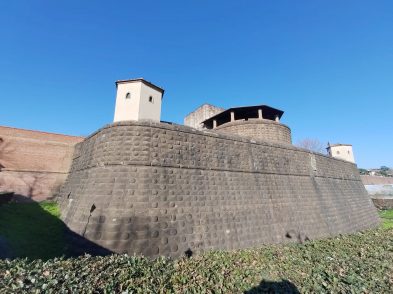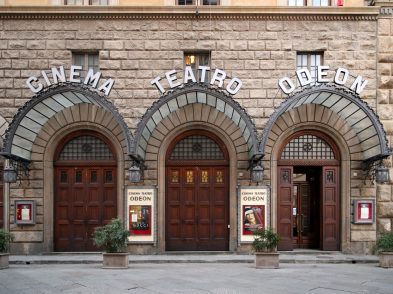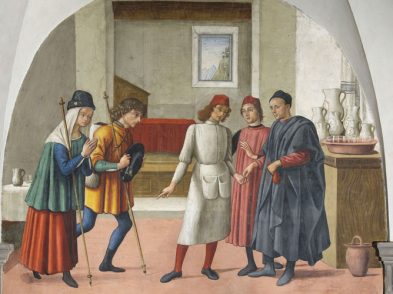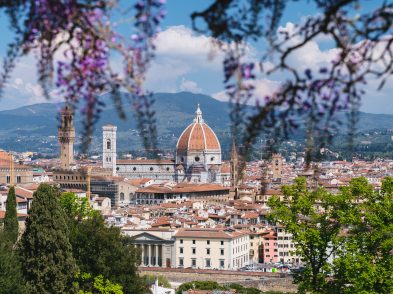The life of publishing magnate and cinema mogul, Angelo Rizzoli, reads like the story in the melodramas regularly found in the magazines he published. Rizzoli was born in Milan on October 31, 1889, to an impoverished family. Despite their circumstances, however, his family lived in one of the most affluent areas of the city. Overwhelmed by misery, his father committed suicide, leading Rizzoli, a poor boy who had grown up amongst rich children at school, to describe his happiest moment as the day when, at six years old, he was taken into the care of the Martinitt boys’ orphanage in Milan. He commented that once he was there with the other orphans, he felt that he was finally ‘the same as all the rest.’
To prepare him for a trade, the orphanage trained Rizzoli as a printer. Starting work at 16, he carefully saved his first wages as a typographer, amassing the 500 lire he needed for a down payment on a Linotype machine. With the machine and with one employee, he opened his own typography shop, A. Rizzoli & C. By ploughing all the profits back into the business, he quickly paid off his debts and, in 1913, moved to bigger premises, where he invested in his first colour printing press.
In 1927, Rizzoli acquired Novella, a biweekly women’s magazine whose circulation he increased to 130,000. Soon after, he added other publications, among them Annabella, Bertoldo, Candido, Omnibus, Oggi and L’Europeo. At their peak, his 10 weekly magazines were catering to a readership of 20 million people. In 1929, he branched into book publication, beginning with the Storia del Risorgimento, then the Enciclopedia Italiana (1929-1937) and the collection, I Classici Rizzoli (from 1934). In 1949, after rebuilding his printing plant destroyed by Allied bombings during World War II, he began publication of the Biblioteca Universale Rizzoli (BUR), popularising classics and novels by Italian and foreign authors by charging a low price for them. In 1954, in order to supply his printing presses, he took over the Cartiera di Marzabotto paper factory. In 1960, he moved his operations to a complex on via Civitavecchia in Milan, today renamed via Angelo Rizzoli after him.
With his legendary Midas touch, Rizzoli also opened two highly profitable film production and distribution companies, Dear Film and Cineriz. In all, they produced 150 films, including the popular Don Camillo series as well as Fellini’s La Dolce Vita and his Oscar-winning film, Otto e Mezzo.
Nicknamed the cumenda, the Milanese word for ‘commander’ or ‘boss,’ Rizzoli was a small man, extroverted and flamboyant, whose formal education had ended in the fifth grade. He rarely remembered the names of his authors or directors, nor did he read their books or necessarily understand the story lines of their films. But he had an exceptional flair for recognising talent and for taking a risk on it. He was seldom wrong. In his element with the jet set and silver-screen stars, especially beautiful young actresses, Rizzoli held lavish parties on his yacht, the Sereno, and was often photographed gambling at casinos all over Europe. Smitten in the 50s by the island of Ischia and quick to grasp its tourist potential, he bought a villa there and invested heavily in its budding hotel industry.
In the 1960s, Rizzoli also opened book shops in Milan and Rome as well as the famous Rizzoli International Bookstore on Fifth Avenue in New York, featured in the film Falling in Love, starring Robert DeNiro and Meryl Streep, and in Woody Allen’s Manhattan.
At the beginning of his rise to fame and fortune, soon after opening his first printing works, Rizzoli had married Anna Marzorati who, in the early years, supplemented the family income by working as a seamstress. They had two children, Andrea and Giuseppina. Not unusual among self-made men, who somehow seem to resent the opportunities their money and power give to their children, he left little decision-making within the business to his son and he was not adverse to humiliating him in front of others, often unfairly, for what he thought were Andrea’s failings. Angelo Rizzoli’s death in Milan on September 24, 1970, of complications from gall bladder disease saved him the ignominy of seeing his empire crumble.
In 1974, trying to fulfil one of his father’s lifelong dreams, Andrea Rizzoli became a major shareholder in Italy’s most important newspaper, Corriere della Sera, then vastly overpriced and losing money. This transaction set in motion a chain of events that, in 1981, led to the implication of Andrea’s sons, Angelo, known as ‘Angelone’ and Alberto together with Bruno Tassan Din, the managing director of the paper, in the scandal involving the covert P2 (Propaganda Due) masonic lodge and to their arrest for fraudulent bankruptcy. Although they were eventually cleared of the charges, it was too late to save Angelo Sr.’s legacy, and in 1984, after 75 years, the group passed out of the family’s hands.
Villa Arbusto, Rizzoli’s former home at Lacco Ameno on the island of Ischia, houses a museum dedicated to him and the many famous Italian and international figures who visited him there. It is also the venue of the Pithekoussai Archaeological Museum and is surrounded by a spectacular garden. For further information, see www.museoangelorizzoli.it








